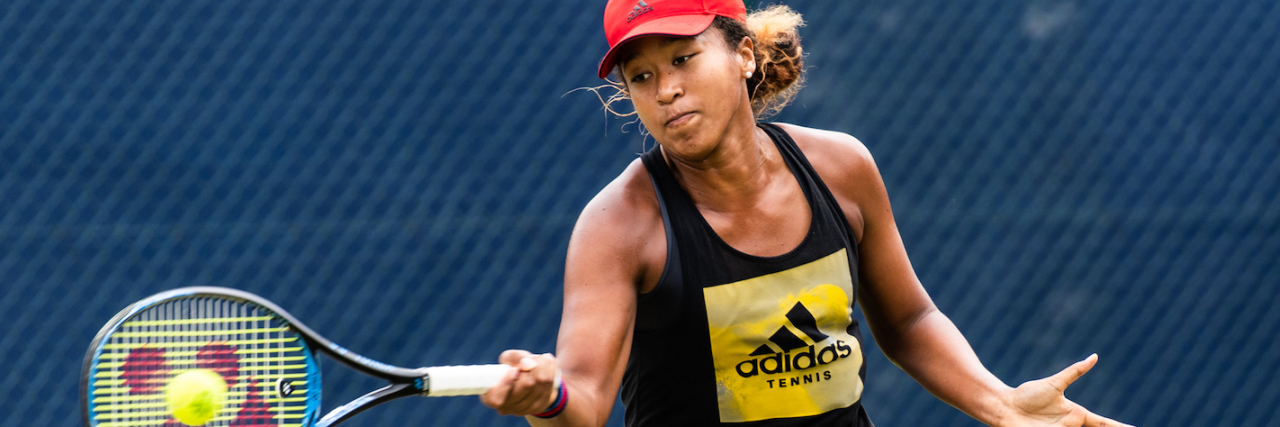In case you missed it, Naomi Osaka has withdrawn from the French Open.
Osaka realized she no longer wanted to entertain the press during Roland Garros, and chose to prioritize her mental health as an athlete. Ultimately was on the receiving end of backlash so nasty in a sport known for its vitriol against other Black athletes such as the Williams sisters, she decided to completely withdraw from the tournament.
— NaomiOsaka大坂なおみ (@naomiosaka) May 31, 2021
In her post announcing the news, she wrote that she’s introverted, has social anxiety and that she’s been living with depression more on than off since 2018. She didn’t want to entertain media she felt preyed on her in a way that was detrimental to her health, thus chose to step back. While in the past Naomi was seen as the more palatable “nicer” athlete, compared to tennis star Serena Williams, that’s changed due to the fact that Naomi kindly and effectively decided to put herself first.
While I do my best to operate in kindness, I am not always afforded the privilege of being seen that way. In order to be seen as such, I need to showcase large amounts of bubbly, peppy, happy go-lucky energy. This is the energy that makes non-Black folk slightly more comfortable while in my presence. I have to perform regardless of whatever social setting I’m in, simply to survive as a Black woman. On top of that, my mental health conditions heavily impact how I naturally socialize. I have to fight daily, reminding myself to operate in a neurotypical fashion regardless of what my instincts are. Thanks to years of behavioral assimilation and microaggressions, I’m now living with social anxiety due to racism and ableism, both individually and collectively.
At my old job, one of the trials and tribulations I faced was that we didn’t have many Black women working there. In a female led space, most of the women there were white, and with that comes a certain level of daily micro- and macro-aggressions. Tired of it, I lived with my headphones in my ears and slowly retreated into myself, always being polite, cordial and smiling when spoken to. Instead of pushing myself to have draining interactions that would ultimately make me want to rip my hair out, I focused on my books, work and other means of entertainment when not actively on my feet. Right before COVID-19 lockdown started, I finally started opening up to those around me. That’s why I was shocked when one of my friends told me how I was being perceived by others.
They said other people had mentioned I “gave off bad vibes” because I was “so quiet.”
Distraught, I spoke to other Black girls about it, and they reported the same thing had happened to them in their workplaces. While I am an extrovert (a highly selective introverted-extrovert, but I digress), most of the friends I spoke to were not. Even though they’re some of the most amazing people, they were constantly written off as mean, angry, stuck up and generally as bad people all because of things such as introversion and social anxiety. My co-workers created a narrative around my silence, when in reality I was hyper-aware of every breath I made because I didn’t want to create a social faux paus due to my attention deficit hyperactivity disorder (ADHD), depression, anxiety (social or otherwise) or any of my other disorders.
Naomi Osaka decided to prioritize and distance herself from what harmed her, just as I did, and we were vilified for it.
Black women don’t have the luxury and privilege of being extended grace when it comes to our social anxiety due to implicit bias. People would rather sit in the comfort of the “angry Black woman” stereotype than challenge themselves and think, “Are they OK?” What if, and stay with me, our silence has nothing to do with you? What if we’re simply going through a lot? What if we’re living with social anxiety that makes socializing hard? What if we just don’t feel like talking? Why take our silence so personally and then revile and berate us when we don’t want to play with you?
Social anxiety can be debilitating for people who have it, regardless of race, however race does have an impact in the accommodations given and received. I’ve seen white women with social anxiety be cared for because of their condition. I’ve seen them get promotions with it in mind, and have had people run to their aid immediately when they need it. However, in the same situations, I haven’t been afforded those accommodations. Instead, I was sat down in an office and denied a promotion even though I lived with and communicated my needs daily.
There is a large discrepancy between how Black women and non-Black women are treated. Naomi Osaka deserved better from her industry and the press just as I did and as all Black women do.
Image via WikiMedia Commons

